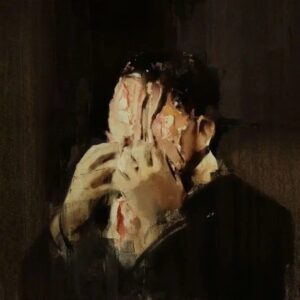
‘The Picture of Dorian Gray’ by Oscar Wilde details the life of young and hedonistic Dorian Gray and his exploits in nineteenth-century London. Regarded as a classic in ‘dark academia literature’, it is brimming with Wilde’s witticism, characterisation and observations of society (Wilde’s verbose descriptions and excessive commas are also practiced in abundance in this book).
The story opens with a conversation between Dorian and Lord Henry Wotton after they view Basil Hallward’s masterpiece portrait of Dorian, his muse. Influenced by Lord Henry’s provocative opinions on the transience of youth, Dorian wishes for eternal youth as his portrait ages in his place. From that point onwards, the portrait serves as a reflection of his moral decay and the story follows Dorian’s unrestrained pursuits of pleasure.
The book explores the darker aspects of human nature and is a poignant study of aestheticism. The painting reflects all of Dorian’s, and humanity’s, cruelest qualities- greed, arrogance, hypocrisy and overindulgence. The book embodies the theme of art as an imitation of life as the portrait of Dorian Gray is the central figure. The most important theme that Wilde narrates in the story is the impermanence of youth and beauty. Dorian’s hedonistic lifestyle is influenced by a conversation with Lord Henry about how he would not stay young forever and must make the most of it. Lord Henry continues to excuse every one of Dorian’s actions as romantic expression and encourages him to succumb to all his temptations.
Wilde, in his usual style, has stressed heavily on the characters and their dialogue. Lord Henry is scandalous and cynical and enjoys his reputation of being self-indulgent. With his clever words reeking of countless moral questions, Lord Henry influences impressionable Dorian into following his vices and desires, however disreputable. Dorian Gray becomes Lord Henry’s vessel of imparted hedonism- where Lord Henry observes the philosophy, Dorian lives it out to its extreme.
In contrast to both Dorian and Lord Henry, Basil Hallward is meek. Though a lover of beauty as an artist, his idea of aestheticism is principled by morality. He warns Dorian of the effects of lawless decadence. However, his advice falls on deaf ears as Dorian has already been exposed to the enticing world of vice without consequence. Basil realises too late that Dorian is beyond his help.
It is no wonder the novel has earned its timeless and ‘indecent’ reputation. Wilde’s sharp description of Dorian’s descent into vanity and self-corruption draws readers in, bewildering them page by page. For all those looking for a pseudo-philosophical read, looking to ponder on our aesthetic existence and seeking Wilde’s melodramatic but sharp writing, this book is a must-read. It discusses morality, the boundaries of desire and debates the aesthetic ideal of art.
